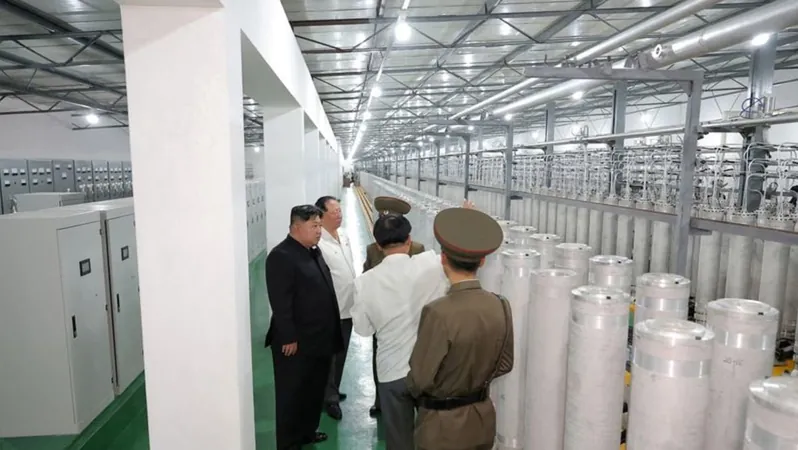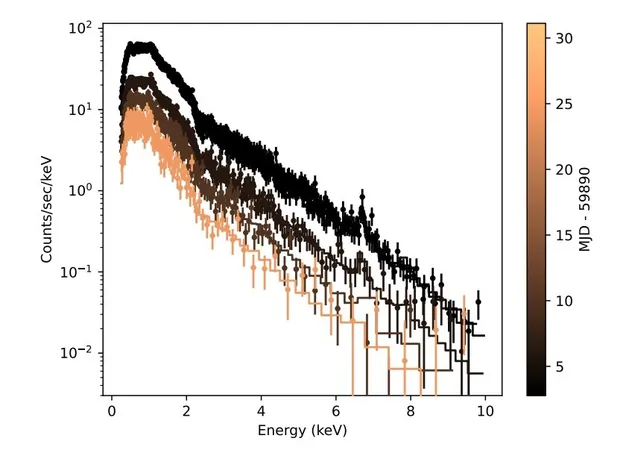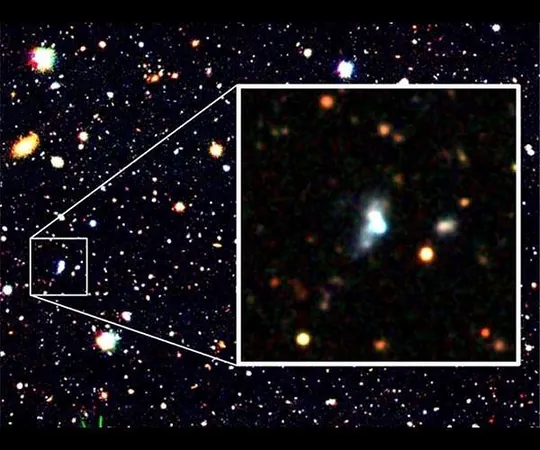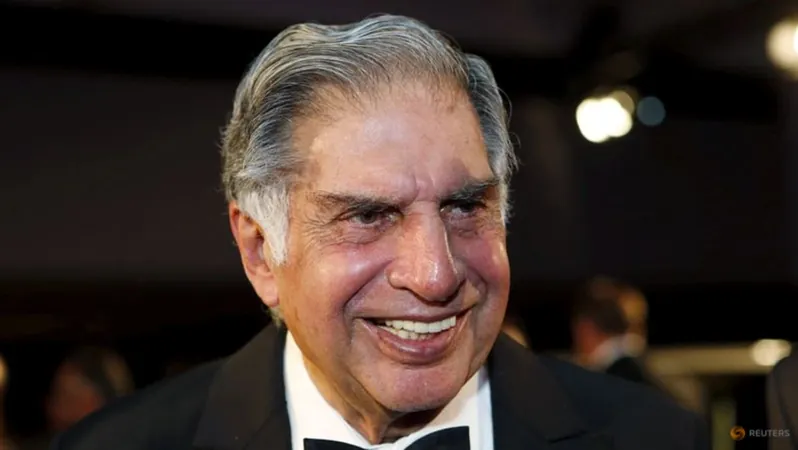
Russia’s New Ally: How the Ukraine War is Fueling North Korea’s Nuclear Aspirations
2024-10-13
Author: Wei Ling
Introduction
In a significant shift in global geopolitics, 2023 has marked a pivotal turn in the efforts to curb North Korea's nuclear ambitions. This year has witnessed the breakdown of multilateral cooperation, allowing both China and Russia to seemingly accept North Korea's unchecked progression towards a nuclear arsenal.
The Alignment between Russia and North Korea
The alignment between Russia and North Korea became crystal clear when Russia vetoed a United Nations Security Council resolution aimed at reviving monitoring mechanisms for violations of North Korean sanctions. This action represented a substantial blow to efforts aimed at containing Pyongyang’s nuclear program. Previously, a united front had been maintained, with both China and Russia cooperating in imposing sanctions against North Korean nuclear activities. Their dual efforts began after North Korea's first nuclear test in 2006, reflecting widespread regional anxiety not just from the United States and its allies but also from China and Russia themselves.
Changing Dynamics
Despite their historical opposition to nuclear proliferation, the dynamics have changed dramatically. Leaders from both Beijing and Moscow began to value North Korea as a destabilizing force against US influence in the region while simultaneously distancing themselves from enforcing existing sanctions. Today, North Korea boasts enough fissile material to build between 70 to 90 nuclear warheads, a potential that could escalate to 200 by 2027, reckoning a dire future for regional stability.
The Impact of Global Sanctions
The rift in geopolitical cooperation has deepened sanctions enforcement, as both Russia and China have routinely bypassed their obligations. Russia's ongoing war in Ukraine exacerbates this situation. As Western sanctions tighten around Moscow, North Korea, armed with vast amounts of ammunition stockpiled from the Soviet era, has emerged as an invaluable ally. Reports indicate that North Korea has been supplying Russia with munitions, with estimates suggesting approximately 11,000 containers of military supplies have been shipped since September 2023 to aid Russia's military efforts.
North Korea’s Nuclear Ambitions
Moreover, North Korean leader Kim Jong Un has made bold statements reaffirming his commitment to expanding the nation’s nuclear capabilities. He described an "exponential" increase in nuclear weapons, indicating an aggressive policy shift in Pyongyang’s military ambitions.
The Potential Risks of Partnership
As North Korea supports Russia’s military goals, it is likely to seek advanced military technologies in return. This relationship could present a double-edged sword for Russia, as sharing high-level technologies with North Korea could risk proliferation and reveal sensitive information to global competitors, including China. Nevertheless, given Moscow’s current reliance on Beijing due to its isolation from the West, the prospect of a partnership with Pyongyang might become increasingly tempting.
Global Implications of the Russia-North Korea Partnership
The implications of this evolving partnership extend beyond regional implications; they could alter the global balance of power. Should Russia become more desperate in its needs, it may be willing to compromise more valuable technology or resources, including food and energy supplies, to North Korea as they solidify their military ties.
Conclusion
The outcome of this partnership will likely have long-lasting repercussions, not only on the Korean peninsula but also on relations between the great powers competing for influence and control in the region. With North Korea now positioned as a key player in this global chess game, the stage appears set for an escalated arms race, making the world a less secure place than it was before.
As tensions rise and alliances shift, the urgency for renewed multilateral cooperation grows more critical than ever. Without it, both regional stability and global security may suffer profound consequences.






 Brasil (PT)
Brasil (PT)
 Canada (EN)
Canada (EN)
 Chile (ES)
Chile (ES)
 España (ES)
España (ES)
 France (FR)
France (FR)
 Hong Kong (EN)
Hong Kong (EN)
 Italia (IT)
Italia (IT)
 日本 (JA)
日本 (JA)
 Magyarország (HU)
Magyarország (HU)
 Norge (NO)
Norge (NO)
 Polska (PL)
Polska (PL)
 Schweiz (DE)
Schweiz (DE)
 Singapore (EN)
Singapore (EN)
 Sverige (SV)
Sverige (SV)
 Suomi (FI)
Suomi (FI)
 Türkiye (TR)
Türkiye (TR)